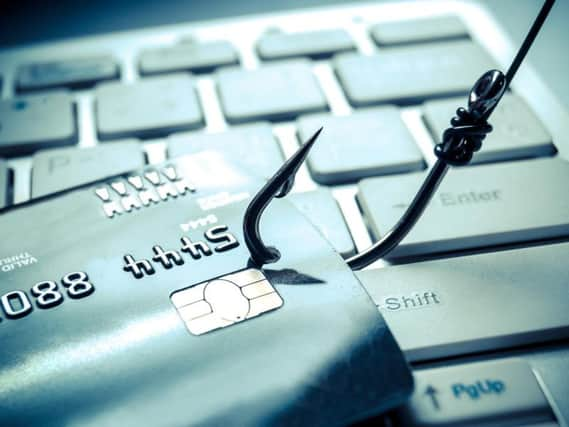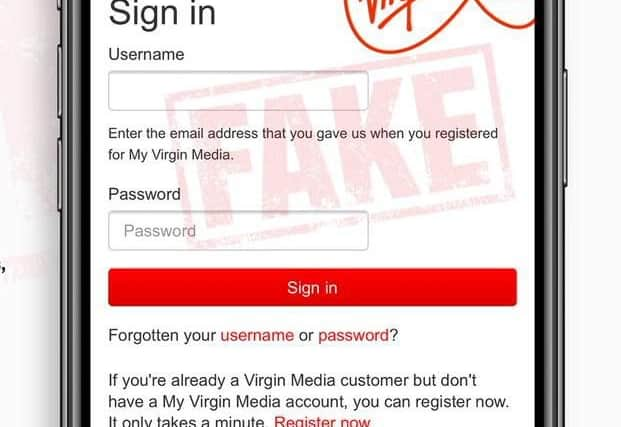Virgin Media ‘phishing’ scam could steal your identity


The convincing scam email has the distinctive Virgin Media logo and branding, and looks for all the world to be completely legitimate.
It threatens customers they are facing “automatic disconnection” due to “invalid billing information” and asks that they take immediate action to prevent this by entering their username and password.
Advertisement
Hide AdAdvertisement
Hide AdAnyone that enters their details however will have handed over their log-in information to the scammers - and they will then be able to use whatever personal information you have stored online and use it to commit fraud crimes, such as identity theft and bank fraud.


What is ‘phishing’?
The email, shared on Twitter by Stirling Police as well as Action Fraud UK, has been highlighted as a phishing scam. Phishing messages try to convince the recipient that they are from a trusted source, and criminals target business users claiming that they have specific knowledge of critical issues, such as customer feedback, requests for information or legal notices.
Action Fraud has received over 100 reports about the fake Virgin Media emails, prompting them to put out a warning as part of a weekly social media post highlighting popular scamming techniques.
Police Scotland Chief Inspector Scott Tees, Safer Communities, said: "We always take opportunities to raise awareness of current or emerging or potential online crimes and provide the Scottish public with key prevention advice on how to keep important information secure and reduce the risk of becoming a victim.”
What should you do?
A spokeswoman for Action Fraud said the scam was one of hundreds reported to them.
“The people behind these scams will use a lot of different organisations, so this week the Virgin Media scam was the most reported, but recently there was a TV licensing scam, and they have also targeted BT, and other broadband companies, as well as banks and online businesses, in a similar way.
“It’s always the same M/O and the sites they use now are very convincing. The information they can access depends on what information people have uploaded, so if they get your Virgin Media log in and your bank details or other personal details are there, they will have access to all of that, and you could find they clone your bank card or you become a victim of identity fraud.”
A Virgin Media spokesperson said: “We are aware of a fraudulent email scam, designed to look like it’s from Virgin Media, which suggests customers are at risk of ‘automatic disconnection’ due to invalid billing information. Should a customer receive one of these fraudulent emails, we urge them to follow Action Fraud’s advice and not to click on the links. Customers should mark the email as spam, contact our dedicated mailbox – [email protected] and delete the email as soon as they have shared it with us.”